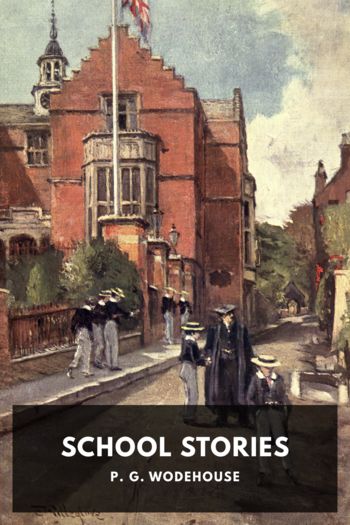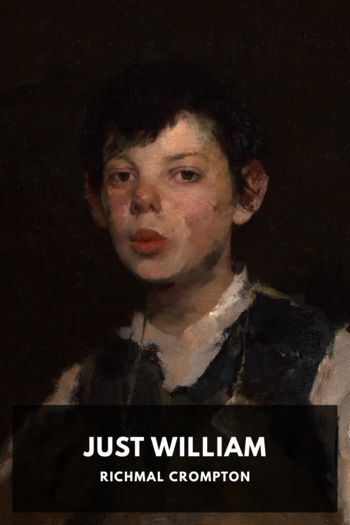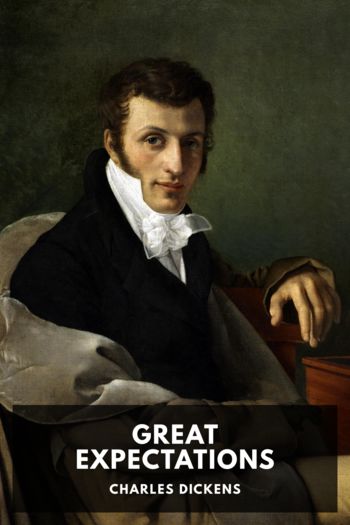Genre Other. Page - 289

Description
School Stories is a collection of humorous short stories by P. G. Wodehouse that feature the trials, tribulations and adventures of the denizens of the turn-of-the-century English boarding school.
First published in schoolboy magazines starting in 1901, the stories originally appeared in publications like The Captain and Public School Magazine. Some were also later collected into books. These stories, written more than a decade before he moved on to his more famous characters like Jeeves and Wooster, represent Wodehouse’s first magazine sales and showcase his early career. While some of these stories are definitely of a moment, they’re filled with delightful bits that would be instantly recognizable to students and teachers of any age. Indeed, the stories experienced a bit of a resurgence in the latter part of the 20th century, and remain a worthy part of Wodehouse’s canon.

Description
Just William, published in 1922, was the first of a long series of well-loved books about William Brown, an eleven-year old English schoolboy, written by Richmal Crompton. William is continually scruffy and disreputable, and has a talent for getting into trouble and becoming involved in various inventive plots and scrapes, to the exasperation of his long-suffering parents and older siblings.
Crompton continued to write stories about the amusing adventures and mishaps of William Brown right up until her death in 1969. Some 39 book collections of stories about William were eventually published, entertaining several generations of children. Despite this, Crompton felt her real work was in writing novels for adults, of which she wrote some 41—most now forgotten and out of print.

Description
The Tenant of Wildfell Hall was the second novel written by Anne Brontë, the youngest of the Brontë sisters. First released in 1848 under the pseudonym Acton Bell, it was considered shocking by the standards of the time due to its themes of domestic disharmony, drunkenness and adultery. Perhaps this was why it quickly became a publishing success. However, when Anne died from tuberculosis her sister Charlotte prevented its republication until 1854, perhaps fearing for her sister’s reputation, though some attributed her actions to jealousy.
The story is framed as a series of letters by the protagonist Gilbert Markham to his friend Halford. Markham tells of the arrival of a young widow, Mrs. Graham, in his rural neighborhood. She brings with her her five year old son Arthur and takes up residence in the partly-ruined Wildfell Hall. Gossip soon begins to swirl around her, questioning her mysterious background and the closeness of her relationship with her landlord Frederick Lawrence. Dismissing these concerns, Gilbert Markham becomes deeply enamored of Helen Graham, and she seems to return his affection strongly. He however becomes increasingly suspicious and jealous of Lawrence, who makes frequent visits to the Hall. He secretly espies them walking together one night, apparently in a romantic relationship. After he confronts Helen over this, she gives him her diary of the last few years and tells him to read it to understand everything. Much of the rest of the novel is made up of extracts from Helen’s diary, which tells the story of her unhappy marriage.

Description
Published in 1860, The Mill on the Floss was the second novel published by George Eliot (the pen name of Mary Ann Evans). Set in the late 1820s or early 1830s, it tells the story of two young people, Tom and Maggie Tulliver, from their childhood into early adulthood. Their father, Jeremy Tulliver, owns Dorlcote Mill on the river Floss, and the children grow to adolescence in relative comfort. However Mr. Tulliver is litigious and initiates an unwise legal suit against a local solicitor, Mr. Wakem. The suit is thrown out and the associated costs throw the Tulliver family into poverty, and they lose possession of the mill.
The main character of the novel is Maggie Tulliver, an intelligent and passionate child and young woman, whose mental, romantic, and moral struggles we follow closely. As in Eliot’s other novels, the author shows a realistic and sympathetic understanding of human behavior.
The Mill on the Floss is regarded as a classic of English literature, and has been made into both a film and a television series.

Description
Though better known as the editor for authors such as Isaac Asimov and Robert Heinlein, John W. Campbell also wrote science fiction under both his own and various pen names. Islands of Space was the second in his Arcot, Morey, and Wade trilogy. Originally published in the spring 1931 edition of Amazing Stories Quarterly, it was later published in book form in 1957.
After the events of The Black Star Passes, Arcot, Morey, Wade, and Fuller look for new challenges. Creating a spaceship that can exceed the speed of light, the four of them set out to explore other galaxies.

Description
The Odyssey is one of the oldest works of Western literature, dating back to classical antiquity. Homer’s epic poem belongs in a collection called the Epic Cycle, which includes the Iliad. It was originally written in ancient Greek, utilizing a dactylic hexameter rhyme scheme. Although this rhyme scheme sounds beautiful in its native language, in modern English it can sound awkward and, as Eric McMillan humorously describes it, resembles “pumpkins rolling on a barn floor.” William Cullen Bryant avoided this problem by composing his translation in blank verse, a rhyme scheme that sounds natural in English.
This epic poem follows Ulysses, one of the Greek leaders that brought an end to the ten-year-long Trojan war. Longing for home, he travels across the Mediterranean Sea to return to his kingdom in Ithaca; unfortunately, our hero manages to anger Neptune, the god of the sea, making his trip home agonizingly slow and extremely dangerous. While Ulysses is trying to return home, his family in Ithaca is also in danger. Suitors have traveled to the home of Ulysses to marry his wife, Penelope, believing that her husband did not survive the war. These men are willing to kill anyone who stands in their way.

Description
The Iliad is one of the oldest works of Western literature, dating back to classical antiquity. Homer’s epic poem belongs in a collection called the Epic Cycle, which includes the Odyssey. It was originally written in ancient Greek and utilized a dactylic hexameter rhyme scheme. Although this rhyme scheme sounds beautiful in its native language, in modern English it can sound awkward and, as Eric McMillan humorously describes it, resembles “pumpkins rolling on a barn floor.” William Cullen Bryant avoided this problem by converting his translation into blank verse.
This epic poem begins with the Achaean army sacking the city of Chryse and capturing two maidens as prizes of war. One of the maidens, Chryseis, is given to Agamemnon, the leader of the Achaeans, and the other maiden, Briseis, was given to the army’s best warrior, Achilles. Chryseis’ father, the city’s priest, prays to the god Apollo and asks for a plague on the Achaean army. To stop this plague, Agamemnon returns Chryseis to her father, but then orders Achilles to give him Briseis as compensation. Achilles refuses.

Description
“When I die and am in Heaven,” Christine Daaé’s father said, “I will send the Angel of Music to you.” It is with these words still in her ears years later that Christine accepts the disembodied voice that speaks to her to claim that divine title, and to give her singing lessons within her dressing room at the Paris Opera, as the fulfillment of her beloved father’s promise. And when those lessons lead her to a performance that astonishes the whole city, who could doubt but that the Angel had indeed come?
Yet there is another, more sinister presence stalking about the Opéra Garnier: the Opera Ghost. A creature who not only makes inconvenient demands—such as the exclusive use of Box Five at every performance, as well as a sizable retainer paid monthly—but who also hangs a man for wandering into the wrong part of the Opera’s cavernous cellars, and sends a chandelier plunging down onto the heads of a packed house when his demands are not met.
But is the Opéra truly host to so many supernatural phenomena, or could it be that the Angel and the Opera Ghost are in fact one and the same? And could it be also that he is far less angel than demon? And if so, will Christine realize her peril before it is too late?

Description
Tono-Bungay, published in 1909, is a semi-autobiographical novel by H. G. Wells. Though it has some fantastical and absurdist elements, it is a realist novel rather than one of Well’s “scientific romances.”
The novel is written in the first person from the point of view of George Ponderevo, the son of the housekeeper at a large estate. He is made to feel his inferiority when he is banished after fighting with the son of one of the owner’s aristocratic relatives, and is sent to live with his own poor but religiously fervent relatives. He can’t abide or agree with their religious views and returns to his mother who sends him on to live with his Uncle, Edward Ponderevo, then a local pharmacist in a small town. Uncle Ponderevo, though, has grand plans, and eventually makes a fortune by selling a quack patent medicine he calls “Tono-Bungay.” George joins him in this endeavour and becomes rich himself, eventually turning his interests towards the new science of aeronautics. Meanwhile the Tono-Bungay scheme expands enormously and begins to topple towards its own destruction.
Throughout the novel, George comments cynically on England’s class system, the shabbiness of commerce, and the lies told in advertising. We also follow his unfortunate love life, his unwise marriage, his divorce, and his eventual reconnection with a woman he loved as a child.
Tono-Bungay met with a mixed reception on first release, but has since come to be considered as perhaps Wells’ finest realist novel, an assessment Wells himself shared.

Description
Charles Dickens was a British author, journalist, and editor whose work brought attention to the struggles of Victorian England’s lower classes. His writings provided a candid portrait of the era’s poor and served as inspiration for social change.
Great Expectations, Dickens’ thirteenth novel, was first published in serial form between 1860 and 1861 and is widely praised as the author’s greatest literary accomplishment.
The novel follows the life, relationships, and moral development of an orphan boy named Pip. The novel begins when Pip encounters an escaped convict whom he helps and fears in equal measure. Pip’s actions that day set off a sequence of events and interactions that shape Pip’s character as he matures into adulthood.
The vivid characters, engaging narrative style, and universal themes of Great Expectations establish this novel as a timeless literary classic, and an engaging portrait of Victorian life.